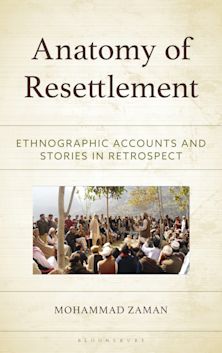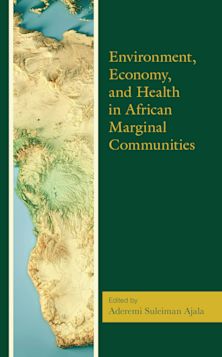- Home
- ACADEMIC
- Anthropology
- Anthropology - Other
- Network Analysis and Ethnographic Problems
Network Analysis and Ethnographic Problems
Process Models of a Turkish Nomad Clan
Network Analysis and Ethnographic Problems
Process Models of a Turkish Nomad Clan
This product is usually dispatched within 2-4 weeks
- Delivery and returns info
-
Flat rate of $10.00 for shipping anywhere in Australia
You must sign in to add this item to your wishlist. Please sign in or create an account
Description
Using network visualization and the study of the dynamics of marriage choices, Network Analysis and Ethnographic Problems expands the theory of social practice to show how changes in the structure of a society's kinship network affect the development of social cohesion over time. Using the genealogical networks of a Turkish nomad clan, authors Douglas White and Ulla Johansen explore how changes in network cohesion are revealed to be indicative of key processes of social change. This approach alters in fundamental ways the anthropological concepts of social structure, organizational dynamics, social cohesion, marriage strategies, as well as the study of community politics within the dynamics of ongoing personal interaction.
Table of Contents
Chapter 2 Problems of Analysis
Chapter 3 Ethnographic Setting
4 Theories, Rules and Exceptions
Chapter 5 Network Models and Complexity: Measures, Graphs, and Context
Chapter 6 Clan Structures and Dynamics
Chapter 7 Marriage, Rank and Migration: Fractality in Social Structure
Chapter 8 Demography, Structure, and Social Change
Chapter 9 Decentralized Leadership and Network Cohesion
Chapter 10 Graphic Approaches to Nomad Solidarity: The Endoconical Clan
Chapter 11 Conclusions
Product details
| Published | 20 Oct 2006 |
|---|---|
| Format | Paperback |
| Edition | 1st |
| Extent | 544 |
| ISBN | 9780739118924 |
| Imprint | Lexington Books |
| Dimensions | 220 x 146 mm |
| Publisher | Bloomsbury Publishing |
About the contributors
Reviews
-
This book presents a brilliant example of the application of network analysis to kinship. . . .The applied value of this study cannot be overestimated because kin structures still play important social (and sometimes political) roles in many societies. . . .This pioneering study establishes methodology that will be in demand in anthropology, political science, economics, legal studies, and Middle Eastern studies.
Audrey Korotayev, research fellow, Oriental Institute, Russian Academy of Sciences
-
Network analysis, as White has been developing it and as he and Johansen apply it here, is not just one technique or method but a whole armamentarium of them, united under a system of general and powerful conceptions of social organization as such. It is such an enormous advance over what anthropologists called network analysis in the 1960s and 70s that it is almost a type of negative advertising to call it by the same name, yet there is a connection. White and Johansen actually deliver what those analyses promised-and then keep going.
Murray J. Leaf, University of Texas at Dallas
-
[W]hat could be the most important book in anthropology in fifty years begins with an introduction to network analysis in relation to ethnography, providing a succinct history of network thinking including very recent developments in various disciplines about network topology and dynamics.... In addition to its contribution to our understanding kinship theory in a quite new way, this book makes an outstanding contribution by reintroducing ethnographers to the network perspective.... The authors point outthat 'taking a network path to coding and analysis' in ethnography leads to the ability to understand the emergence of social structural phenomena that would otherwise remain unobserved.... Whether the reader is interested in kinship, in economics, in politics or history, this book should be considered must reading..
International Journal of Middle East Studies
-
This book shows how network analysis can usefully illuminate complex ethnographic situations that result from long term fieldwork in ways that go beyond the intuitive results of functionalism, (social) structuralism and practice theory.
Nelson Graburn, University of California, Berkeley
-
[W]hat could be the most important book in anthropology in fifty years begins with an introduction to network analysis in relation to ethnography, providing a succinct history of network thinking including very recent developments in various disciplines about network topology and dynamics.... In addition to its contribution to our understanding kinship theory in a quite new way, this book makes an outstanding contribution by reintroducing ethnographers to the network perspective.... The authors
point out that 'taking a network path to coding and analysis' in ethnography leads to the ability to understand the emergence of social structural phenomena that would otherwise remain unobserved.... Whether the reader is interested in kinship, in economics, in politics or history, this book should be considered must reading.International Journal of Middle East Studies


































